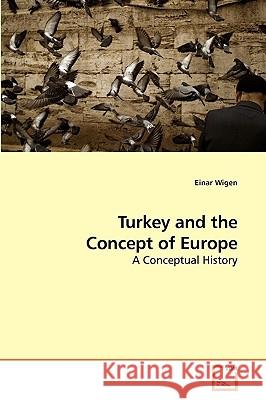Turkey and the Concept of Europe » książka
Turkey and the Concept of Europe
ISBN-13: 9783639230451 / Angielski / Miękka / 2010 / 132 str.
Turkey has changed from an Islamic Empire antagonistic to Christian states to a secular nation state, a member of NATO and a candidate for EU membership. This involves not only a significant shift in foreign policy towards Europe, but also a reshaping of Ottoman and Turkish identity. This book traces how the concept Europe has been shaped in this process over a period of about 200 years. It employs a conceptual history (Begriffsbeschichte) approach; through a broad empirical investigation of Turkish texts that concern the Ottoman Empire's and later Turkey's relationship with Europe, it lays out how the concept of Europe has been shaped and takes its meaning from a semantic field. The main argument is that while Turkish identity is linked to concepts such as 'modernisation', 'Westernisation' and sometimes even 'Europeanisation', the Turkish Self still stands in a co-constitutive relationship with the concept of Europe.
Turkey has changed from an Islamic Empire antagonistic to Christian states to a secular nation state, a member of NATO and a candidate for EU membership. This involves not only a significant shift in foreign policy towards Europe, but also a reshaping of Ottoman and Turkish identity. This book traces how the concept Europe has been shaped in this process over a period of about 200 years. It employs a conceptual history (Begriffsbeschichte) approach; through a broad empirical investigation of Turkish texts that concern the Ottoman Empires and later Turkeys relationship with Europe, it lays out how the concept of Europe has been shaped and takes its meaning from a semantic field. The main argument is that while Turkish identity is linked to concepts such as modernisation, Westernisation and sometimes even Europeanisation, the Turkish Self still stands in a co-constitutive relationship with the concept of Europe.











